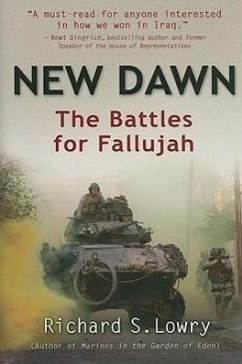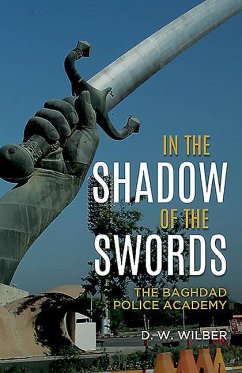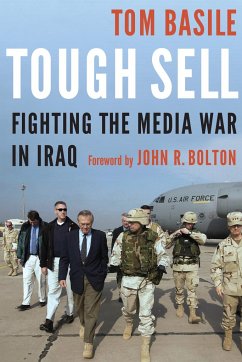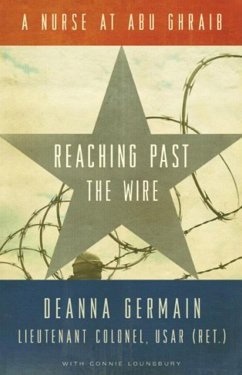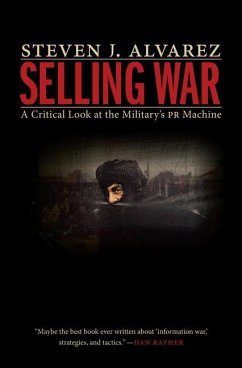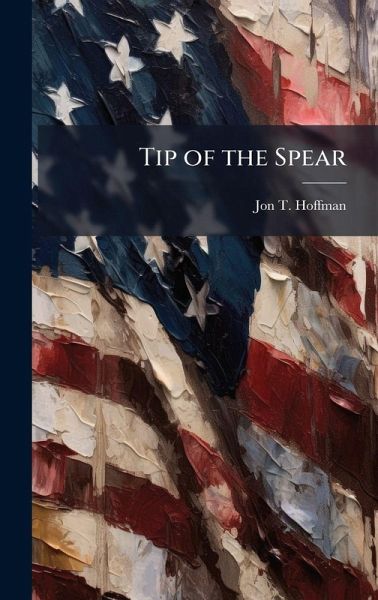
Tip of the Spear
Versandkostenfrei!
Versandfertig in über 4 Wochen
30,99 €
inkl. MwSt.
Weitere Ausgaben:

PAYBACK Punkte
15 °P sammeln!
The lightning campaign that toppled the Saddam Hussein regime in Iraq in the spring of 2003 seemed to herald the arrival of a new way of war, as Germany's blitzkrieg had done at the beginning of World War II. But the initial victory soon devolved into a persistent counterinsurgency conflict reminiscent of the long U.S. effort to pacify the Philippines after the rapid defeat of Spain in 1898. In Iraq, American soldiers and their Coalition partners had merely traded one fairly weak and generally conventional opponent for a more deadly, diverse, and determined foe relying on the tactics of the gu...
The lightning campaign that toppled the Saddam Hussein regime in Iraq in the spring of 2003 seemed to herald the arrival of a new way of war, as Germany's blitzkrieg had done at the beginning of World War II. But the initial victory soon devolved into a persistent counterinsurgency conflict reminiscent of the long U.S. effort to pacify the Philippines after the rapid defeat of Spain in 1898. In Iraq, American soldiers and their Coalition partners had merely traded one fairly weak and generally conventional opponent for a more deadly, diverse, and determined foe relying on the tactics of the guerrilla and the terrorist. This volume focuses on that second and longer campaign. But rather than a narrative of the overall course of the conflict, it provides a soldier's-eye view of the war by focusing on detailed accounts of selected engagements. Each illustrates the everyday challenges that America's soldiers faced in a difficult struggle against an inventive and often elusive enemy. Weapons, doctrine, and procedures developed to fight a conventional campaign against a similar opposing force had to be adapted to fit a different type of conflict. The U.S. Army's combat and support forces brought both resourcefulness and resilience to this task while continuing to demonstrate the same courage shown by previous generations fighting the nation's battles. These stories not only symbolize the tip of the spear formed by units in contact, but they also represent the contributions of all American men and women who have served their country in Operation Iraqi Freedom. Taken together, these accounts will provide our deploying leaders and soldiers a better understanding of the environment that they will encounter and prepare them for the work that must be done. This work has been selected by scholars as being culturally important, and is part of the knowledge base of civilization as we know it. This work was reproduced from the original artifact, and remains as true to the original work as possible. Therefore, you will see the original copyright references, library stamps (as most of these works have been housed in our most important libraries around the world), and other notations in the work. This work is in the public domain in the United States of America, and possibly other nations. Within the United States, you may freely copy and distribute this work, as no entity (individual or corporate) has a copyright on the body of the work. As a reproduction of a historical artifact, this work may contain missing or blurred pages, poor pictures, errant marks, etc. Scholars believe, and we concur, that this work is important enough to be preserved, reproduced, and made generally available to the public. We appreciate your support of the preservation process, and thank you for being an important part of keeping this knowledge alive and relevant.





